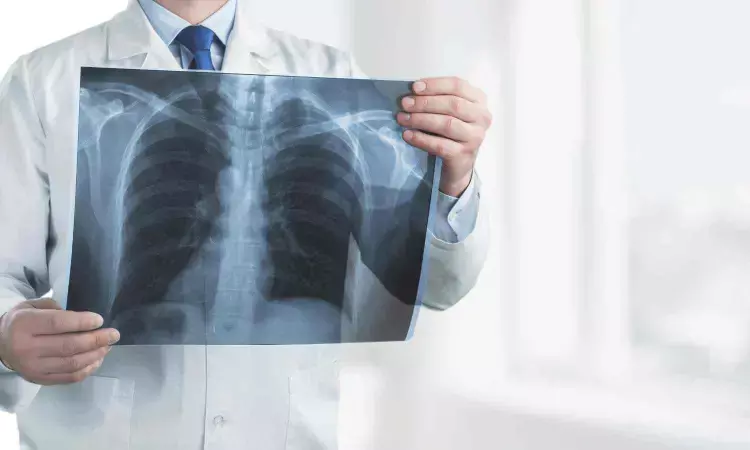- Home
- Medical news & Guidelines
- Anesthesiology
- Cardiology and CTVS
- Critical Care
- Dentistry
- Dermatology
- Diabetes and Endocrinology
- ENT
- Gastroenterology
- Medicine
- Nephrology
- Neurology
- Obstretics-Gynaecology
- Oncology
- Ophthalmology
- Orthopaedics
- Pediatrics-Neonatology
- Psychiatry
- Pulmonology
- Radiology
- Surgery
- Urology
- Laboratory Medicine
- Diet
- Nursing
- Paramedical
- Physiotherapy
- Health news
- Fact Check
- Bone Health Fact Check
- Brain Health Fact Check
- Cancer Related Fact Check
- Child Care Fact Check
- Dental and oral health fact check
- Diabetes and metabolic health fact check
- Diet and Nutrition Fact Check
- Eye and ENT Care Fact Check
- Fitness fact check
- Gut health fact check
- Heart health fact check
- Kidney health fact check
- Medical education fact check
- Men's health fact check
- Respiratory fact check
- Skin and hair care fact check
- Vaccine and Immunization fact check
- Women's health fact check
- AYUSH
- State News
- Andaman and Nicobar Islands
- Andhra Pradesh
- Arunachal Pradesh
- Assam
- Bihar
- Chandigarh
- Chattisgarh
- Dadra and Nagar Haveli
- Daman and Diu
- Delhi
- Goa
- Gujarat
- Haryana
- Himachal Pradesh
- Jammu & Kashmir
- Jharkhand
- Karnataka
- Kerala
- Ladakh
- Lakshadweep
- Madhya Pradesh
- Maharashtra
- Manipur
- Meghalaya
- Mizoram
- Nagaland
- Odisha
- Puducherry
- Punjab
- Rajasthan
- Sikkim
- Tamil Nadu
- Telangana
- Tripura
- Uttar Pradesh
- Uttrakhand
- West Bengal
- Medical Education
- Industry
Lung cancer screening CTs find coronary artery disease in 83% of cases, reveals research

Lung cancer screening with low-dose chest computed tomography (CT) may detect more than just lung cancer. As new research in CMAJ (Canadian Medical Association Journal) shows, these CTs can identify coronary artery calcium, a strong risk factor for coronary artery disease (CAD), in patients without cardiac symptoms.
“Lung cancer screening, although primarily geared towards reducing deaths from lung cancer, also has an opportunity to help tackle the second most common cause of premature death in middle-aged adults, through the identification and risk stratification of coronary atherosclerosis,” writes Dr. Gary Small, University of Ottawa Heart Institute, Ottawa, Ontario, with coauthors.
In a study of 1486 patients screened for lung cancer between March 2017 and November 2018 as part of the Ontario Health Lung Cancer Screening Pilot for People at High Risk, coronary artery calcium was detected in 83% (1232) of patients, with high levels in 30% (439). More than half of patients (52%) were male, mean age was 66 years, and 68% (1017) were current smokers.
As lung cancer is the leading cause of cancer deaths in Canada, screening programs across the country have introduced low-dose CT for people at risk of lung cancer. These CTs can also easily identify coronary calcification, a marker of coronary artery disease, the most common cause of cardiac death.
“If appropriate therapeutic responses are instituted, lung CT findings could affect survival from 2 leading causes of death: lung cancer and coronary artery disease,” the authors write.
The success of this pilot program will be affected by how clinicians interpret and manage findings of coronary artery calcium. However, clinicians must be aware that there could be harms such as inappropriate investigation after coincidental detection.
The authors urge more research into how to manage patients with coincidentally detected coronary artery calcium but suggest “continued attention to cardiovascular disease prevention is warranted and could be amalgamated into lung cancer screening initiatives to promote health.”
Reference:
Marcella Cabral Caires, Keren Mbondo Kasuku, Bethlehem Mengesha, Habibat Garuba, Angeline Law, Christopher Johnson, David Ian Paterson, Carole Dennie, Elena Pena, Li Chen, Benjamin J.W. Chow and Gary R. Small, Open Access Prognostic importance of extensive coronary calcium on lung cancer screening chest computed tomography, CMAJ, DOI: https://doi.org/10.1503/cmaj.231602.
Dr Kamal Kant Kohli-MBBS, DTCD- a chest specialist with more than 30 years of practice and a flair for writing clinical articles, Dr Kamal Kant Kohli joined Medical Dialogues as a Chief Editor of Medical News. Besides writing articles, as an editor, he proofreads and verifies all the medical content published on Medical Dialogues including those coming from journals, studies,medical conferences,guidelines etc. Email: drkohli@medicaldialogues.in. Contact no. 011-43720751


